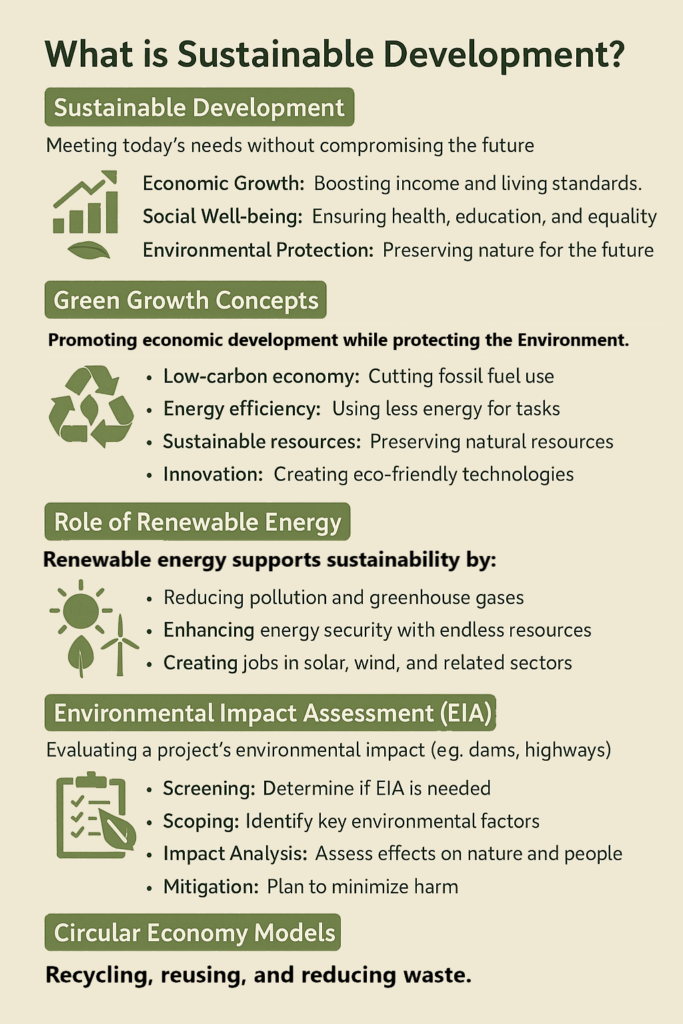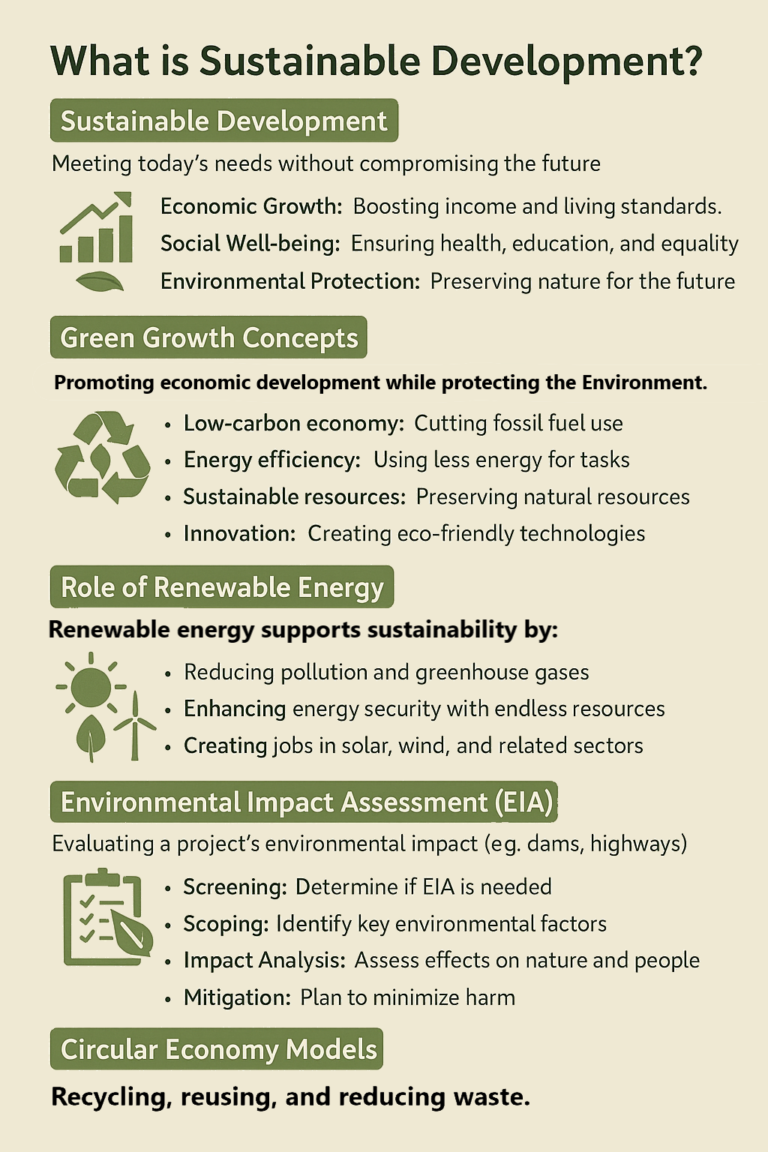Organic Farming – Explanation
What is Organic Farming?
Organic farming is a method of farming that grows food naturally, without using harmful chemicals. It focuses on keeping the soil, plants, animals, and people healthy. In organic farming, farmers avoid synthetic pesticides, chemical fertilizers, and genetically modified organisms (GMOs). Instead, they use natural methods to grow crops and raise animals.

Key Features of Organic Farming:
- No chemical fertilizers or synthetic pesticides.
- No genetically modified seeds.
- Use of compost, cow dung, green manure, and crop rotation to keep the soil fertile.
- Natural methods to control pests (like neem oil or ladybugs).
- Emphasis on animal welfare and natural living conditions for livestock.
Organic farming is not just about growing food; it’s about working with nature, not against it.
Techniques Used in Organic Farming
- Crop Rotation: Growing different crops in the same area in different seasons. This prevents pests and keeps the soil healthy.
- Green Manuring: Using certain plants (like legumes) to improve soil fertility by adding nutrients naturally.
- Composting: Making fertilizer from food waste, leaves, and animal dung. It makes the soil rich and improves plant growth.
- Biological Pest Control: Using natural enemies of pests (like birds, frogs, or insects) instead of chemical pesticides.
- Organic Mulching: Covering the soil with dry leaves or straw to keep it moist and cool and stop weeds from growing.
- Natural Animal Rearing: Animals are given organic feed, plenty of space to move, and are treated naturally when sick.
These techniques help maintain a natural balance in the environment.
Benefits of Organic Farming
For the Environment:
- Less Pollution: No harmful chemicals are released into the air, soil, or water.
- Healthy Soil: Compost and crop rotation keep the soil alive and rich in nutrients.
- Biodiversity: Organic farms support more insects, birds, and animals.
- Water Conservation: Organic methods keep water sources cleaner and use water more wisely.
For Health:
- No chemical residues on food.
- More nutrients in some organic fruits and vegetables.
- Lower risk of pesticide-related health problems.
For Farmers:
- Better prices in the market.
- Safer working environment (no handling of dangerous chemicals).
- Long-term benefits through improved soil fertility and sustainability.
Challenges and Future of Organic Farming
Despite its benefits, organic farming has some challenges:
- Lower Yields: Organic farms sometimes produce less food than conventional farms.
- High Costs: Organic certification and natural fertilizers can be expensive.
- Limited Knowledge: Some farmers need more training to switch to organic methods.
- Pests and Diseases: Without chemicals, pest control can be harder.
The Future:
- Demand for organic food is growing as people become more health-conscious.
- Governments and organizations are promoting organic farming through education and financial help.
- Scientists are researching better organic techniques to increase productivity.
With time, organic farming can become more efficient, affordable, and widespread.
Summary:
Organic farming is a natural way of growing food that avoids harmful chemicals and works in harmony with nature. It focuses on using compost, crop rotation, and natural pest control to grow healthy crops and raise animals humanely. While it has many benefits for the environment, health, and farmers, it also faces challenges like lower crop yields and higher costs. However, with growing demand and better support, organic farming has a strong and promising future.













